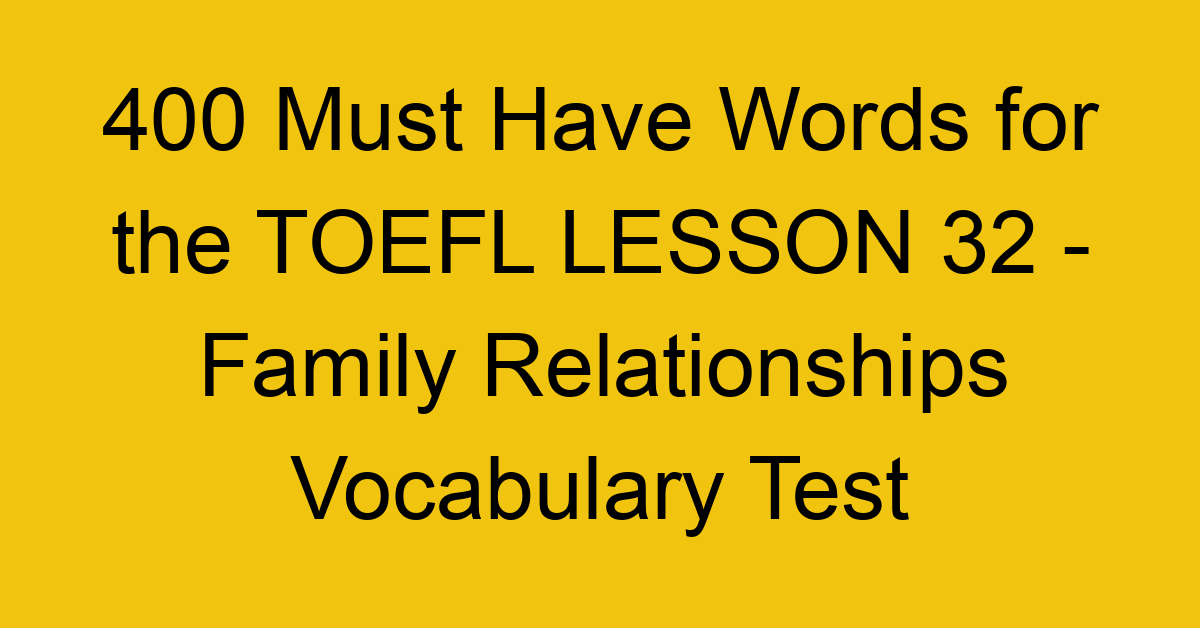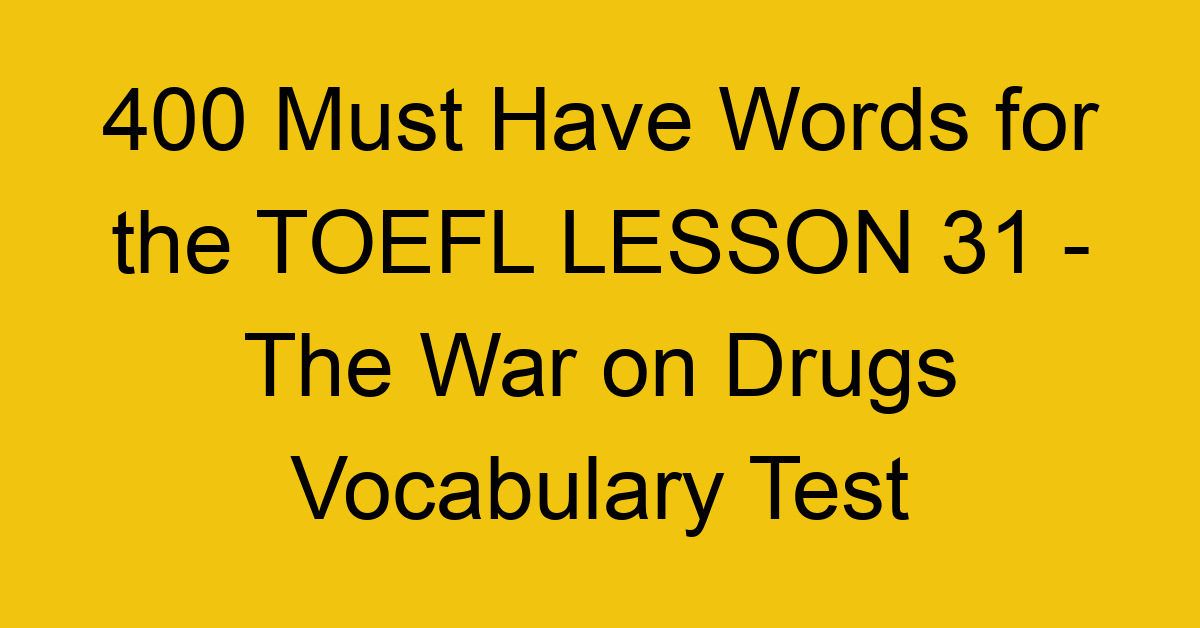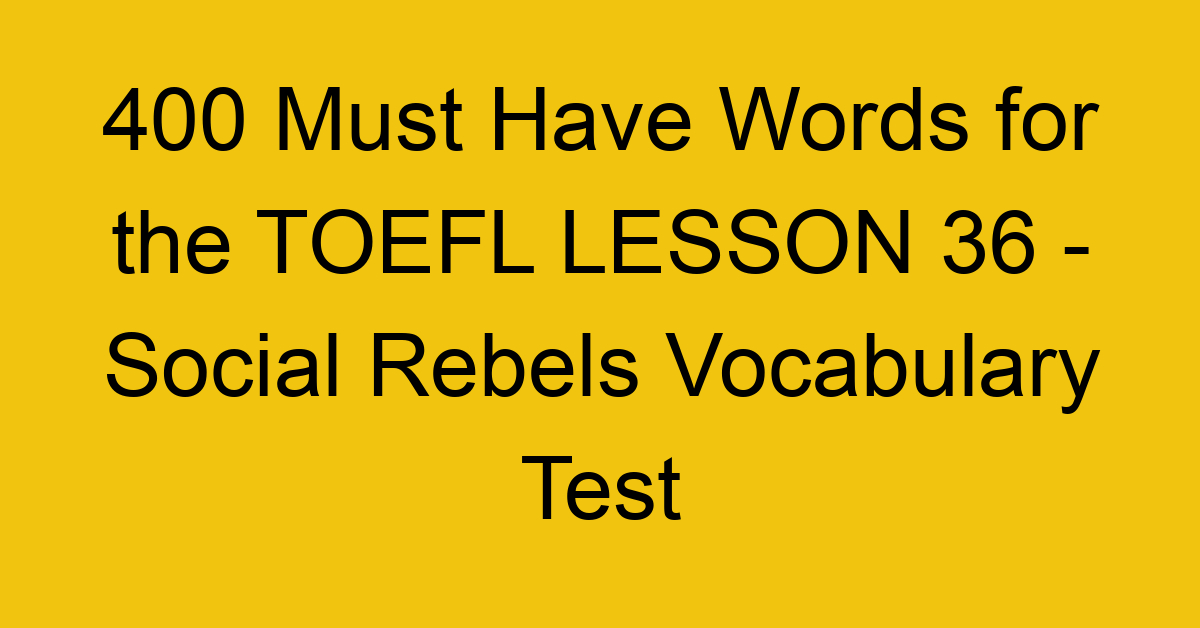400 Must Have Words for the TOEFL LESSON 33 - Friendship Vocabulary Test
Word List
affection [əˈfekʃən] n.
An emotional closeness or warmth
→ I show affection for my girlfriend by spending time with her, not by spending money on her.
Usage tips Affection is often followed by a for phrase.
Parts of speech affectionate adj.
associate [əˈsəuʃɪeɪt] v.
To regularly spend time together
→ Carol doesn’t associate with people who smoke.
Usage tips Associate is often followed by a with phrase.
Parts of speech association n., associate n.
bond [bɒnd] n.
A close connection
→ Some researchers say that there is an especially strong emotional bond between twins.
Usage tips A between phrase—indicating the things that are connected—often follows bond.
Parts of speech bond v.
clique [kliːk] n.
A small group of friends who are unfriendly to people outside the group
→ High-schoolers form cliques to gain security and acceptance.
Usage tips Clique indicates a negative feeling toward a group.
Parts of speech cliquish adj.
confide [kənˈfaɪd] v.
To tell very personal things
→ Teenagers are more willing to confide in a friend than in a parent.
Usage tips Confide is almost always followed by an in phrase.
Parts of speech confidence n., confidant n., confidential adj.
exclusive [ɪksˈkluːsɪv] adj.
Keeping out all but a few people
→ The most exclusive universities accept only a small percentage of people who want to attend.
Usage tips Exclusive can indicate a positive opinion,but in the context of friendship, it can mean “attached only to one person.”
Parts of speech exclude v., exclusion n., exclusively adv.
fluctuate [ˈflʌktjʊeɪt] v.
To change often, from one condition to another
→ Earth’s climate fluctuates between warm periods and cold periods.
Usage tips Fluctuate is usually followed by a between phrase (or by a from . . . to structure).
Parts of speech fluctuation n.
in common .adv
As a shared characteristic
→ Billy and Heather have a lot in common—basketball, a love of pizza, and an interest in snakes.
Usage tips In common very often appears with the verb to have.
solidarity [ˌsɒlɪˈdærɪtɪ] n.
Standing together despite pressure to move apart
→ Many student groups declared solidarity with the Latino Student Association in their effort to get a Spanish-speaking principal.
Usage tips Solidarity is usually used in political contexts.
willing [ˈwɪlɪŋ] adj.
Agreeable and ready to do something
→ Because of their long friendship, Professor Gardner was willing to say a few words at Jones’s birthday celebration.
Usage tips Willing is almost always followed by a to + verb structure.
Parts of speech will v., will n., willingness n.






